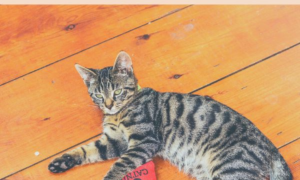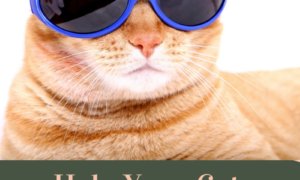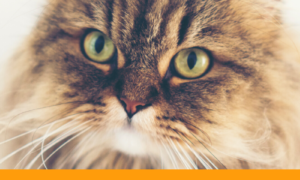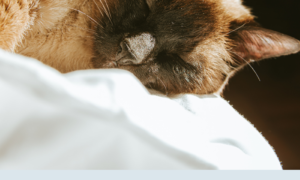Earlier this year, the Pet Poison Helpline released the top 10 household items that caused pet guardians to call for poison consultations during 2013. Here is the list of to 10 cat toxins for 2013:

- Lilies: The variety of lily determines whether it is relatively harmless or potentially deadly. Non-toxic varieties include the Calla, Peace and Peruvian, and typically cause irritation of the upper GI tract. Toxic lilies — including the Tiger, Asiatic, Stargazer, Casablanca, Rubrum, Day, Japanese Show and Easter lily — can prove deadly for your cat. Just a tiny amount of any portion of these plants can cause kidney failure.
- Household Cleaners: General-purpose cleaners are relatively safe, but concentrated products like drain or toilet bowl cleaners can cause chemical burns. Many cleaners can be created at home from all natural products, a much healthier option.
- Topical Flea/Tick Products For Dogs: Never use a canine flea/tick product on your cat. Depending on the ingredients in the product, just a drop has the potential to kill a cat within hours.
- Antidepressants: Cymbalta and Effexor topped Pet Poison Helpline’s toxic antidepressants list in 2013. For some reason kitties are drawn to these medications, which can cause severe neurologic and cardiac effects.
- NSAIDs: Cats are more sensitive than dogs to non-steroidal anti-inflammatory drugs like ibuprofen and naproxen. And because cats are so sensitive, veterinary-specific NSAIDs should be used with extreme caution, if at all.
- Prescription ADD/ADHD Medications: Just as with dogs, these drugs, which are amphetamines, can cause tremors, heart problems, seizures and death in cats.
- Over-the-Counter Cough, Cold and Allergy Medications: Many of these preparations contain acetaminophen (a painkiller) and pseudoephedrine or phenylephrine (decongestants). Acetaminophen is especially toxic to cats – it damages red blood cells and causes liver failure.
- Plants That Contain Insoluble Calcium Oxalate Crystals: Peace lilies, philodendron and pothos can cause oral and upper GI irritation, foaming at the mouth and inflammation when ingested.
- Insecticides: If you use insecticides on your indoor plants, make sure to keep your cat away from plants after application until the products have dried or settled.
- Glow Sticks/Glow Jewelry: Many cats enjoying gnawing on glow sticks and glow jewelry. These items contain dibutyl phthalate, a chemical that can leak out and burn your cat’s fur and tongue.
If you know or suspect your pet has ingested or been exposed to a toxic substance, call your veterinarian, a nearby emergency animal hospital, and/or the 24/7 Pet Poison Helpline at 800-213-6680.
Source: Healthy Pets article by Dr. Karen Becker, available at healthypets.mercola.com





